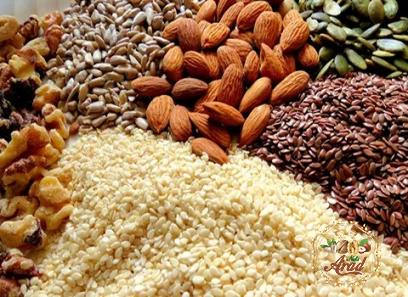Almond fruit, known for its unique taste and multiple health benefits, is gaining popularity in Nigeria. With its versatility, nutritional value, and pleasant flavor, almond fruit has become a sought-after commodity in the country. In this article, we will explore the price of almond fruit in Nigeria, the advantages and disadvantages of consuming it, and different ways to incorporate it into our diet.
1. Price of Almond Fruit in Nigeria
The price of almond fruit in Nigeria can vary depending on various factors such as the region, season, and supply and demand dynamics. Generally, almonds are considered relatively expensive compared to other fruits due to their labor-intensive cultivation and the need for specific climatic conditions.
In major cities such as Lagos, Abuja, or Port Harcourt, a kilogram of almond fruit can range from ₦2,500 ($6.25) to ₦4,000 ($10). Prices may fluctuate based on seasonal availability and the source of the almonds, whether locally produced or imported.
2. Advantages and Disadvantages of Almond Fruit in Nigeria
Advantages:
– Rich in Nutrients: Almond fruit is a rich source of protein, fiber, healthy fats, vitamins (such as vitamin E), and minerals (such as magnesium and potassium). These nutrients are essential for maintaining a healthy body and promoting overall well-being.
– Heart Health: The consumption of almond fruit, which is low in saturated fats and high in monounsaturated fats, has been linked to a reduced risk of heart diseases. The high content of vitamin E and antioxidants in almonds helps in maintaining cardiovascular health.

– Weight Management: Almonds are known for their satiating properties due to their high fiber and protein content. Including almond fruit in a balanced diet can help promote feelings of fullness, making it a good choice for individuals aiming to manage their weight.
– Blood Sugar Control: Almonds have a low glycemic index, meaning they cause a slow rise in blood sugar levels compared to high-glycemic foods. This makes them an ideal choice for individuals with diabetes or those looking to maintain stable blood sugar levels.
– Skin and Hair Health: Almond fruit contains vitamin E, which is known for its antioxidant properties that help protect the skin from damage caused by free radicals. Consumption of almond fruit may also contribute to healthy hair growth.
Disadvantages:
– Allergies: Some individuals may have allergies or sensitivities to almonds, which can include symptoms such as itching, swelling, or difficulty breathing. It is important to be aware of any allergies before introducing almond fruit into your diet.
– Calorie Density: Almonds are high in calories, and excessive consumption can contribute to weight gain if not consumed in moderation. It is advisable to incorporate almonds into a balanced diet, considering their caloric content.
– Expense: As mentioned earlier, almonds can be relatively expensive compared to other fruits available in the Nigerian market. This may limit accessibility for some individuals.
3. How to Use Almond Fruit in Nigeria

Almond fruit can be used in various ways to add flavor and enhance nutrition in Nigerian cuisine:
– Snacking: Almond fruit can be consumed as a snack on its own. It provides a healthy alternative to processed snacks and can be paired with other nuts and seeds for a nutritious mix.
– Baking: Almond flour or ground almonds can be used as a substitute for wheat flour in baking recipes. This makes it a suitable option for those with gluten intolerance or those looking for a healthier alternative.
– Smoothies: Almond fruit can be blended into smoothies or shakes, adding an extra layer of creaminess and flavor. This is an excellent way to incorporate its nutrients into your daily routine.
– Sauces and Dressings: Ground almonds can be used to thicken sauces or as a base for creamy dressings. They add a unique nutty flavor to dishes, enhancing their taste.
– Almond Milk: Almond fruit can be used to make plant-based milk alternatives, such as almond milk. This dairy-free option is popular among individuals with lactose intolerance or those following a vegan lifestyle.
Conclusion
Almond fruit, with its rich nutritional profile and versatility, has gained popularity in Nigeria. While it may come with certain disadvantages, the advantages of consuming almond fruit and incorporating it into our diet outweigh the drawbacks. The diverse range of ways to use almond fruit in Nigerian cuisine makes it a valuable addition to a healthy and balanced lifestyle.










